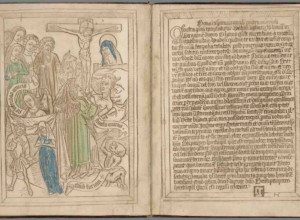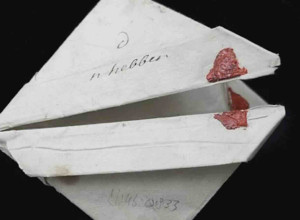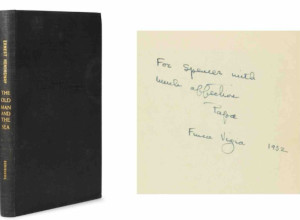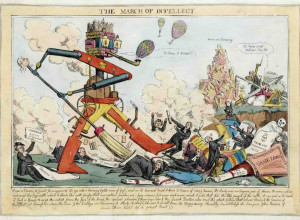Armenian Literary Tradition is Subject of LOC E-Book
In 1512, Hakob Meghapart (Jacob the Sinner) opened an Armenian press in Venice, Italy, and published an Armenian religious book, "Urbatagirk" (the Book of Fridays). The era of Armenian printing had begun.
In 2012, the Library of Congress marked the quincentenary of this milestone with an exhibition titled "To Know Wisdom and Instruction: The Armenian Literary Tradition at the Library of Congress" with a companion volume compiled by the Library’s Armenian Area Specialist Levon Avdoyan. This volume is now available as an interactive ebook (through the Armenian eBook Initiative from the iBookstore).
Drawing from the Armenian collections of the Library of Congress, the ebook contains 75 color images highlighting the varieties of the Armenian literary tradition from the era of manuscripts through the early periods of print and on to contemporary publishing.
Featured manuscripts range from 14th- and 15th-century gospel books hand-copied by monks to 19th-century works on palmistry (Constantinople, 1894), firefighting (Venice, 1832), cotton production (Paris, 1859) and the first modern Armenian novel, "Armenia’s Wounds," by K. Abovyan (1848). The first complete Armenian language printed Bible from Amsterdam in 1666 is also included, with a richly illuminated missal copied in 1722 for the use of the celebrant of the Armenian liturgy. With these comes a rare 19th-century musical manuscript by Pietro Bianchini, who was the first to transcribe the Armenian liturgy using European musical notation. A 20th-century Soviet edition of the Armenian national epic, "David of Sasun," (1962) is one of the more contemporary items included in the collection.
Avdoyan will discuss "To Know Wisdom and Instruction" at the 2015 Library of Congress National Book Festival, to be held from 10 a.m. to 10 p.m. on Saturday, Sept. 5 at the Walter E. Washington Convention Center in Washington, D.C. The book talk will take place from 4:15 p.m. to 4:45 p.m. in the Library of Congress Pavilion. The book festival is free and open to the public. More information is at loc.gov/bookfest/.
The Library’s exhibition, "To Know Wisdom and Instruction," can be viewed online at loc.gov/exhibits/armenian-literary-tradition/.
The Library’s African and Middle Eastern Division (www.loc.gov/rr/amed/) is the center for the study of 78 countries and regions from Southern Africa to the Maghreb and from the Middle East and the Caucasus to Central Asia. The division’s Near East Section is a major repository for Armenian language materials on a wide variety of subjects in varied formats.
Founded in 1800, the Library of Congress is the nation’s first-established federal cultural institution. The Library seeks to spark imagination and creativity and to further human understanding and wisdom by providing access to knowledge through its magnificent collections, programs, publications and exhibitions. Many of the Library’s rich resources can be accessed through its website at loc.gov.















